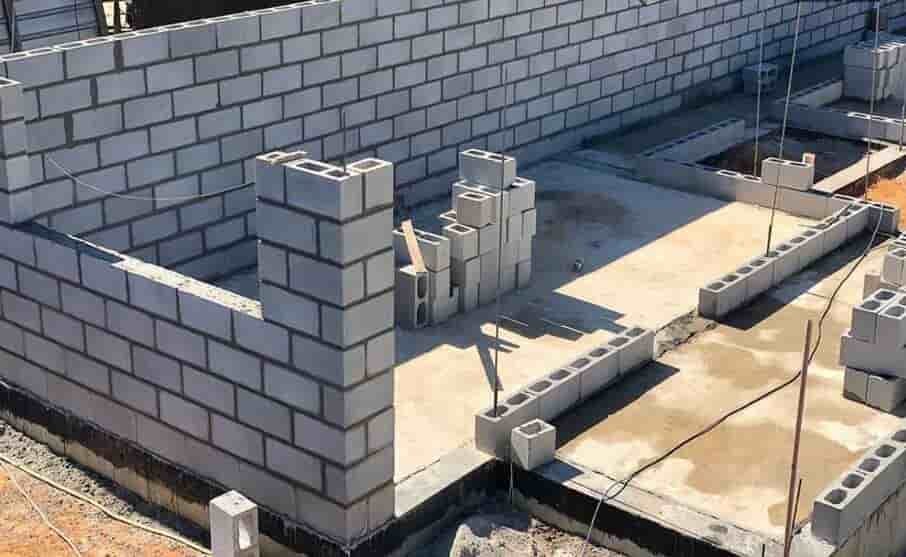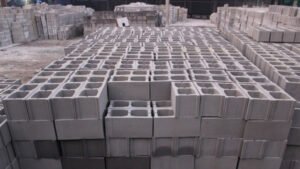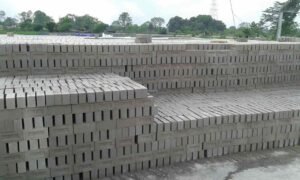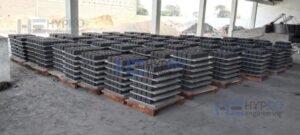Concrete blocks, also known as concrete masonry units (CMUs), are a widely used building material in construction projects. They are made of cement, aggregates, and water, and come in a variety of shapes and sizes. In this article, we will explore the different types of concrete blocks, their advantages and disadvantages, and their applications.
Types of Concrete Blocks:
There are several types of concrete blocks available in the market, each with its own unique properties and characteristics. Some of the common types are:
Solid Concrete Blocks:
These are made from solid concrete and are denser and heavier than other types of blocks. They are used for load-bearing walls and other structural applications.
Hollow Concrete Blocks:
These blocks have one or more hollow cores inside them, which reduce their weight and make them easier to handle. They are used for non-load bearing walls, partitions, and insulation.
Insulated Concrete Blocks:
These blocks have an insulating material, such as foam or polystyrene, sandwiched between two layers of concrete. They are used for walls that require high insulation values.
Lightweight Concrete Blocks:
These blocks are made of lightweight aggregates, such as expanded clay, shale, or pumice, which reduce their weight and make them easier to handle. They are used for non-load bearing walls, partitions, and fire-resistant construction.
Advantages of Concrete Blocks:
Concrete blocks have several advantages that make them a popular choice in construction projects. Some of the advantages are:
Strength and Durability:
Concrete blocks are strong and durable, and can withstand heavy loads and extreme weather conditions. They have a long lifespan and require minimal maintenance.
Fire Resistance:
Concrete blocks are fire-resistant, which makes them an excellent choice for buildings that require high fire safety standards.
Sound Insulation:
Concrete blocks have excellent sound insulation properties, which makes them ideal for buildings located in noisy environments.
Energy Efficiency:
Concrete blocks have high thermal mass, which means they can absorb and store heat, reducing the need for heating and cooling.
Versatility:
Concrete blocks come in a variety of shapes and sizes, making them suitable for a wide range of construction applications.
Disadvantages of Concrete Blocks:
Concrete blocks also have some disadvantages that need to be considered before using them in construction projects. Some of the disadvantages are:
Heavy Weight:
Solid concrete blocks are heavy and require special equipment for handling and placement. This can increase the construction time and cost.
Poor Insulation:
Solid concrete blocks have poor insulation properties, which can increase the energy costs of the building.
Environmental Impact:
The production of concrete blocks requires a large amount of energy and water, and can contribute to carbon emissions.
Applications of Concrete Blocks:
Residential Construction: Concrete blocks are commonly used in residential construction projects for building walls, foundations, and retaining walls.
Commercial Construction: Concrete blocks are an excellent choice for commercial construction projects such as office buildings, warehouses, and shopping centers.
Industrial Construction: Concrete blocks are ideal for industrial construction projects such as factories and manufacturing plants because of their durability and strength.
Landscaping: Concrete blocks can be used to build retaining walls, garden walls, and outdoor fireplaces, making them an excellent choice for landscaping projects.
Infrastructure: Concrete blocks are commonly used in the construction of bridges, tunnels, and other infrastructure projects because of their strength and durability.
Conclusion:
Concrete blocks are a versatile, cost-effective, and durable building material that can be used in a wide range of construction projects. Whether you are building a residential or commercial structure, landscaping your backyard, or constructing infrastructure, concrete blocks are an excellent choice for your project. With their numerous benefits and applications, it is no wonder why concrete blocks are a popular choice among builders and contractors around the world.




